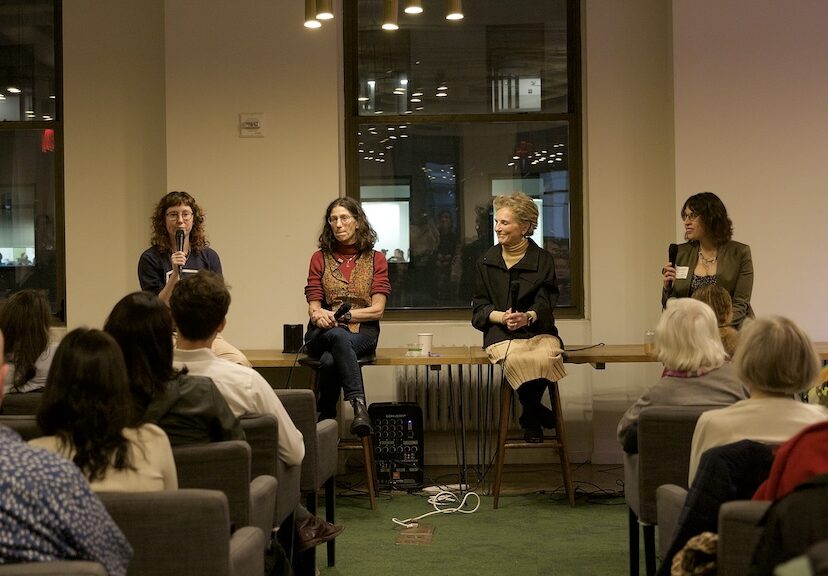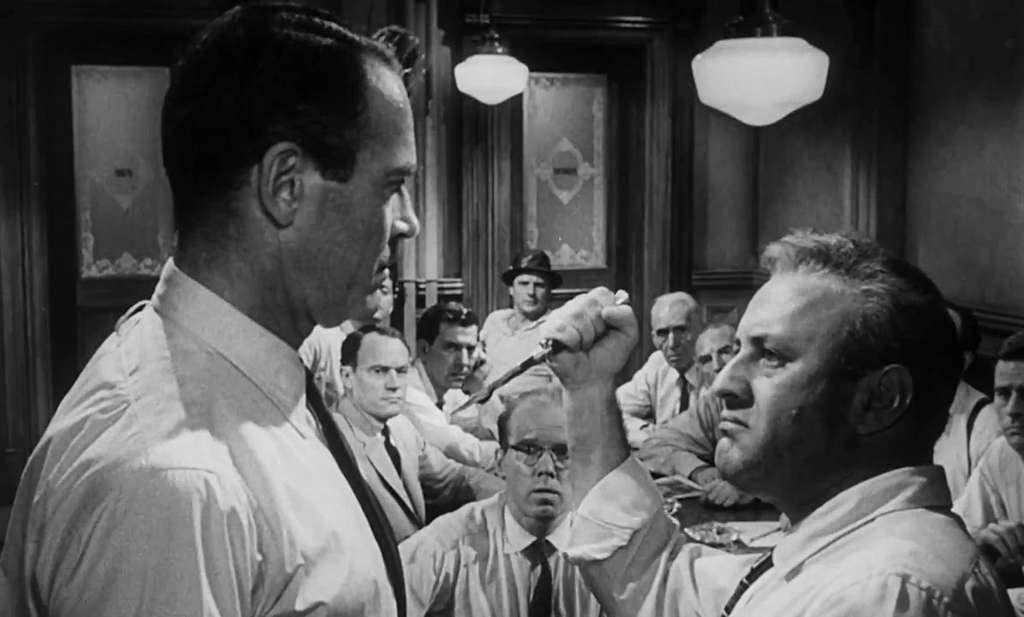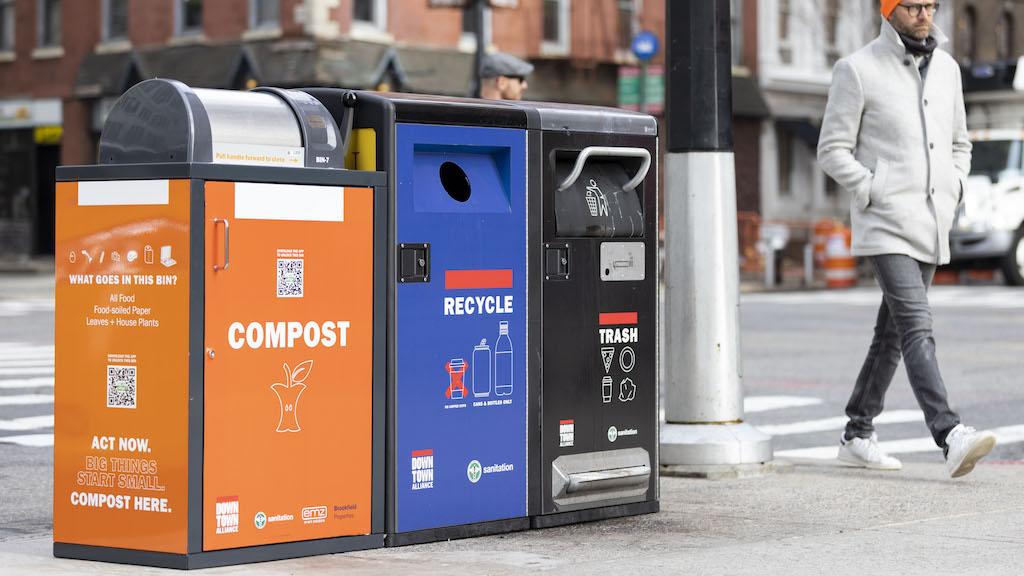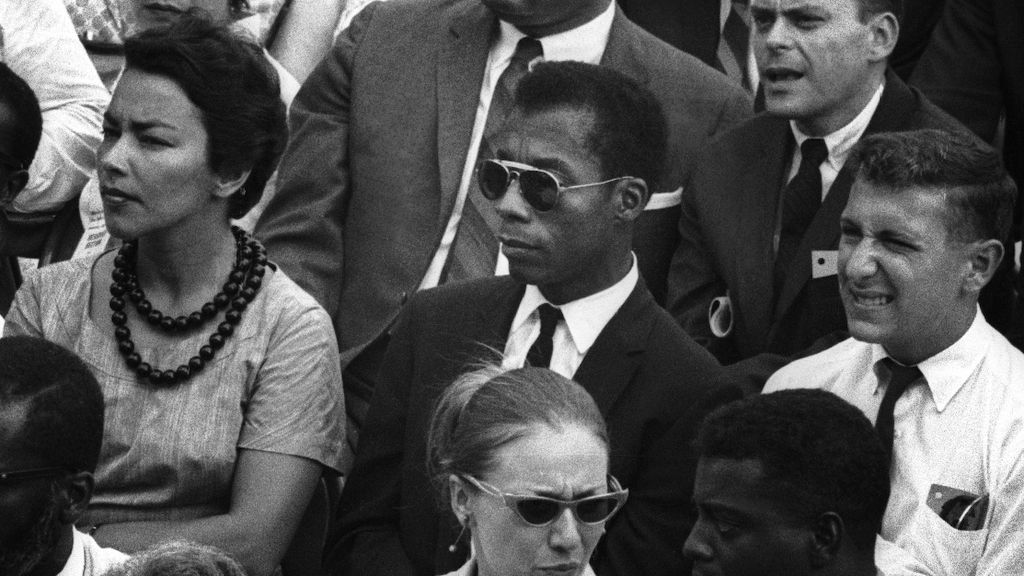LM Live Recap: Making NYC a Model for Urban Sustainability

On Thursday, March 7, the Downtown Alliance started a new season of programming at Primary (26 Broadway) with a full audience and lively panel discussion featuring Lower Manhattan experts who are developing systems and community efforts to make NYC a model for sustainable urban development.
“Redefining the Concrete Jungle: NYC as a Model for Sustainable Urban Development” featured Marisa DeDominicis, executive director at Earth Matter NY; Warrie Price, president of the Battery Conservancy; Gail Tierney, corporate volunteer coordinator at Billion Oyster Project; and Lenore Kantor, founder of Growth Warrior, who moderated the panel.
Kantor set the tone by inviting the audience to take a moment to set an intention for the planet before asking the panelists to explain the missions of each of their organizations: DeDominicis, Price and Tierney shared that Earth Matter NY is dedicated to advancing composting in and around New York City, the Conservancy activates and maintains the Battery’s 25 acres of public parkland, and Billion Oyster Project aims to restore New York City’s oyster ecosystem throughout its waterways.
DeDominicis and Tierney both agreed that the biggest obstacle for their respective organizations is simply lack of awareness. DeDominicis underscored the importance of education and community effort, saying the only solution to addressing climate change through composting is to “hold people’s hands and tell them that we can all do this together.” She explained that if the community doesn’t come together to compost, all of that organic matter either gets incinerated — leading to higher pollution and asthma rates — or it ends up in a landfill. “The waste of one,” she added, “is food for another.”
Price shared why and how she founded the Battery Conservancy almost 30 years ago. “If I didn’t take this on, it wasn’t going to happen and we were all going to suffer,” she said. Today, the park has more pedestrian traffic than any other park in New York City. She attributes her group’s success to leading by example, especially in creating community spaces that serve the public in more ways than one, like the Gardens of Remembrance and the Battery Urban Farm.
When asked by Lenore how each of the panelists partner with other organizations, DeDominicis replied “we’re nothing without our partners and collaborators.”
Tierney added that the Billion Oyster Project also relies heavily on its network of collaborators for education and restoration, from its community scientists to schools to local restaurants participating in its shell recycling program.
Price stressed that she has raised almost $200 million throughout the Conservancy’s lifetime, and has never received any government funding. “The private public partnership is huge,” Price said. “New Yorkers are so generous.” Price also added that she was lucky in that she never felt the policies in New York went against anything she believed in.
”The most important thing is to have a vision,” Price said. “You have to see it before you can fight for it.” She believes she never could have raised the funds to create, operate or maintain the Conservancy unless she believed in it 100 percent. “You have to stick your neck out and be fearless. You learn in failure. I never stopped doing something because I was afraid it wouldn’t work, I was just worried it wasn’t good enough.”
“Understanding why you wake up every morning is really important,” DeDominicis echoed.
Lenore asked the audience to consider how each person can drive change. “Whatever is bothering you is your opportunity to make an impact,” she said. “That is where we need a solution.”
Several audience members had questions about composting: how to do it, how much of their organic matter gets composted and where does it go.
DeDominicis shared that 10 percent of what’s collected in the big belly cans around Lower Manhattan goes to Fresh Kills to create compost. The remaining “sludge” that cannot be composted goes to a biodigester to create methane fuel. She then urged the audience to let city council members know if they support community composting.
“There’s a lot on fire right now,” Tierney added. “This is a collective effort and there are solutions all around us.” Tieney encouraged the audience to “find one thing [to do to help the environment] that brings [you] joy.”
Keep an eye on our website for more LM Live events in the months to come.
Tags: lm live recap

